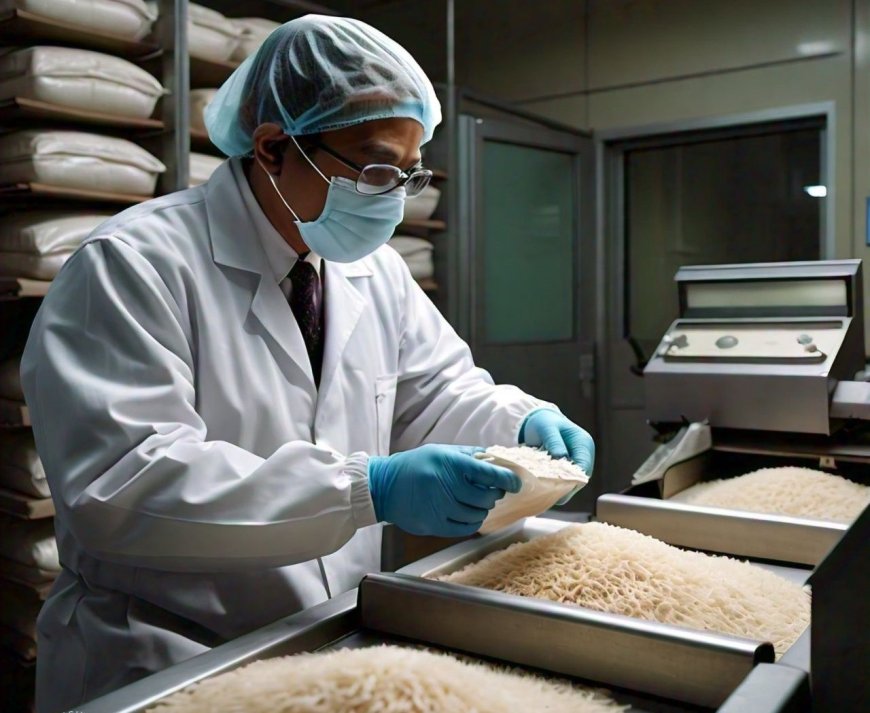Basmati rice, renowned for its unique aroma, long grains, and exquisite taste, holds a prestigious position in the global rice market. As demand for this premium rice continues to grow, ensuring its quality has become paramount for exporters. Here’s an in-depth look at the essential aspects of quality assurance in Basmati rice export.
Understanding Quality Parameters
Grain Length and Uniformity
One of the distinguishing features of Basmati rice is its long, slender grains. Exporters must ensure that the grains are uniform in size and shape, as this significantly impacts the rice's market value and consumer satisfaction.
Aroma and Flavor
The characteristic aroma of Basmati rice, attributed to the presence of the compound 2-acetyl-1-pyrroline, is a key quality parameter. Proper aging and storage are crucial to maintaining this aroma, which enhances the overall flavor profile of the rice.
Purity
Maintaining the purity of Basmati rice involves preventing contamination with other rice varieties. This requires stringent segregation and processing practices to ensure that only pure Basmati rice reaches the consumer.
Moisture Content
Optimal moisture content is vital for the storage and quality of Basmati rice. High moisture levels can lead to spoilage and the growth of molds, while excessively low moisture can affect the texture and cooking quality.
Quality Assurance Practices
Procurement from Reliable Sources
Quality assurance begins at the source. Exporters should procure rice from reliable farmers and suppliers who adhere to good agricultural practices. Regular field inspections and audits can help ensure that the rice meets the required quality standards.
Advanced Milling Techniques
The milling process plays a critical role in determining the final quality of Basmati rice. Advanced milling techniques, such as those that minimize broken grains and preserve the rice's natural properties, are essential. State-of-the-art machinery and skilled operators are key to achieving consistent quality.
Rigorous Testing and Inspection
Comprehensive testing and inspection are indispensable in the quality assurance process. This includes checking for grain length, moisture content, purity, and the presence of foreign materials. Laboratories equipped with modern testing equipment can provide accurate and reliable results.
Adherence to International Standards
Exporters must comply with international quality standards and regulations. This involves adhering to guidelines set by organizations such as the International Organization for Standardization (ISO) and ensuring that the rice meets the phytosanitary requirements of the importing country.
Proper Packaging and Storage
Packaging and storage are crucial for maintaining the quality of Basmati rice during transit. Using high-quality, food-grade packaging materials that protect against moisture, pests, and contamination is essential. Additionally, storage facilities should be clean, dry, and temperature-controlled.
Certifications and Traceability
Quality Certifications
Obtaining quality certifications from recognized bodies can enhance the credibility of Basmati rice in international markets. Certifications such as ISO 22000 (Food Safety Management) and HACCP (Hazard Analysis and Critical Control Points) demonstrate a commitment to quality and safety.
Traceability Systems
Implementing traceability systems allows exporters to track the rice from the farm to the consumer. This transparency helps in quickly addressing any quality issues that may arise and builds trust with buyers and consumers.
Conclusion
Quality assurance in Basmati rice export is a multifaceted process that involves meticulous attention to detail at every stage, from cultivation to packaging. By adhering to stringent quality parameters, employing advanced milling and testing techniques, and complying with international standards, exporters can ensure that their Basmati rice meets the highest quality standards and satisfies discerning consumers worldwide. Ensuring quality not only enhances the reputation of the brand but also contributes to the sustained growth and success of the Basmati rice industry.



















![Safe Abortion pills[[+971521786258]] Doha Qatar/Ar Rayyan Qatar/Umm Salal Mu?ammad Qatar/Al Wakrah](https://news.bangboxonline.com/uploads/images/202501/image_430x256_679bc869b24fb.jpg)





